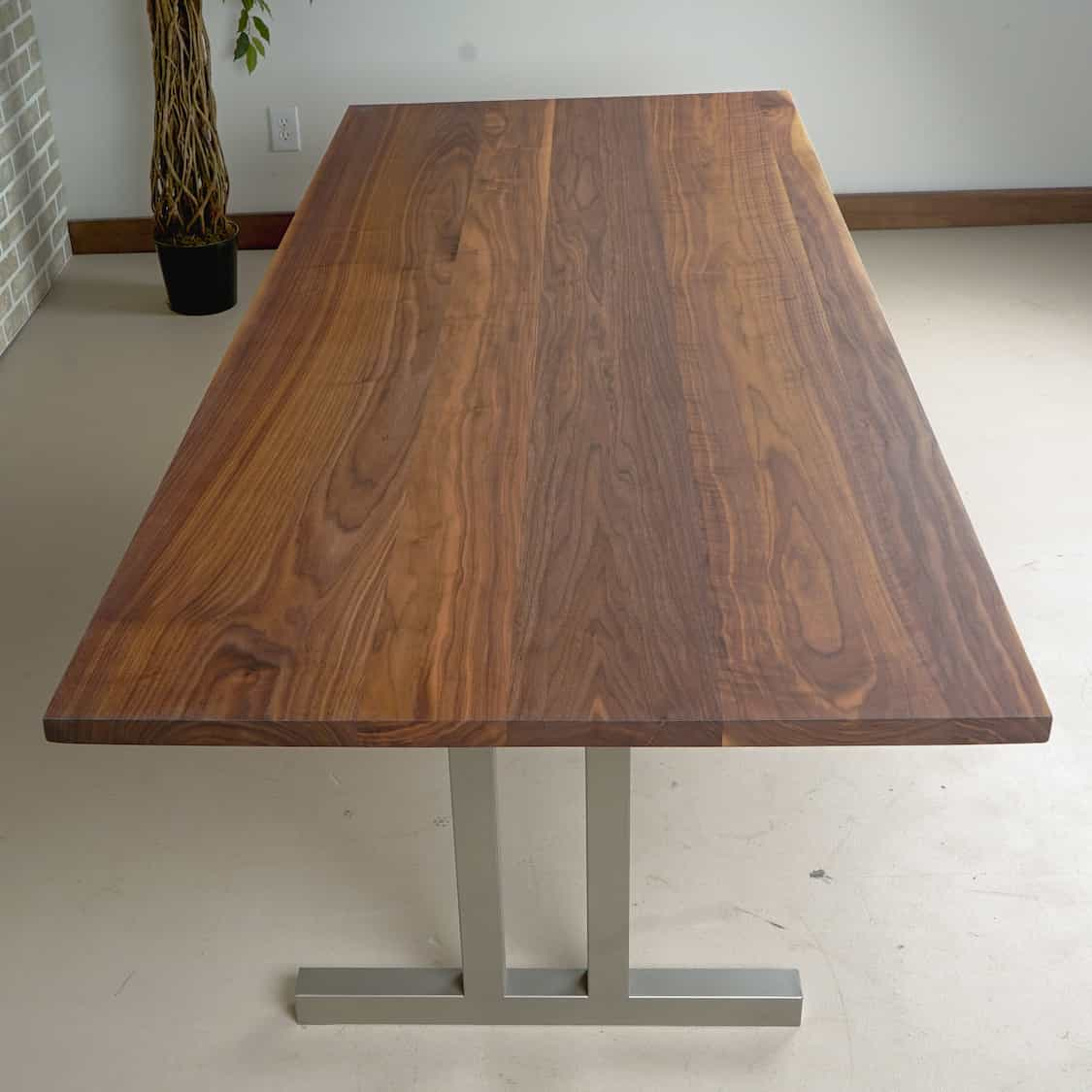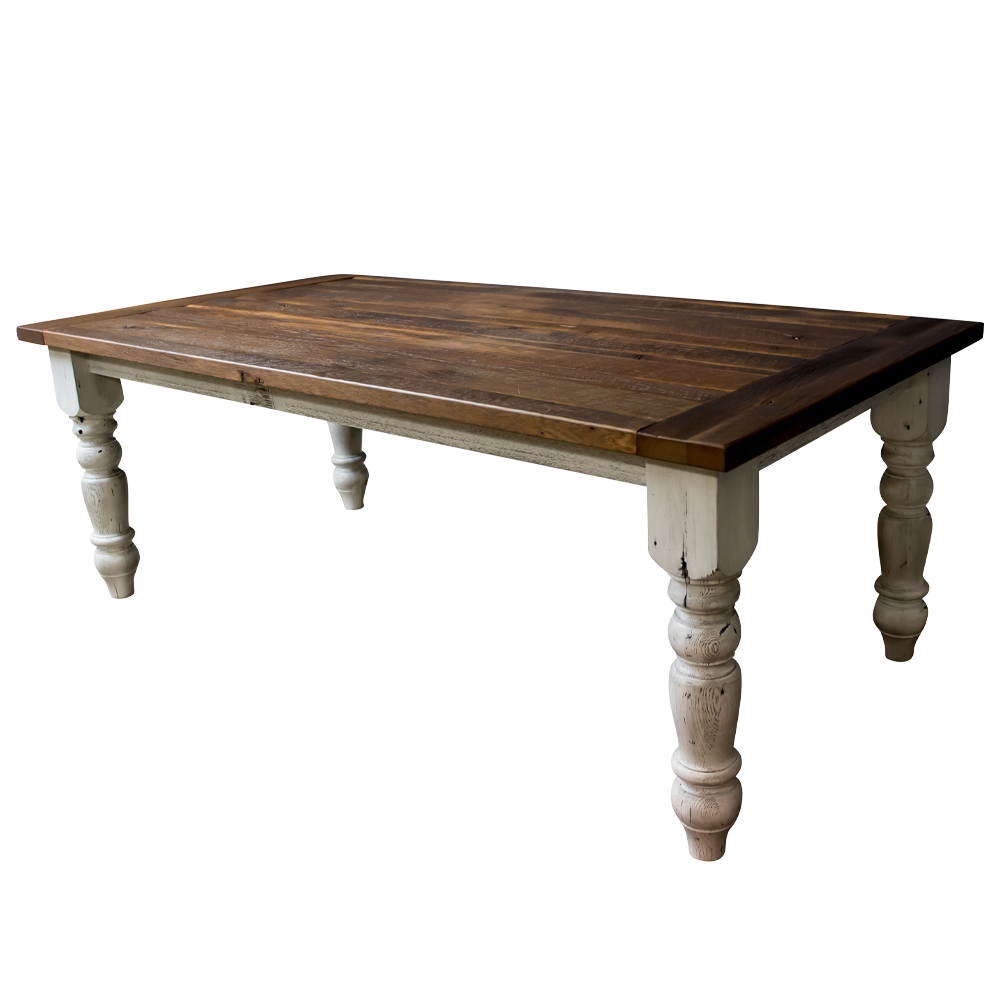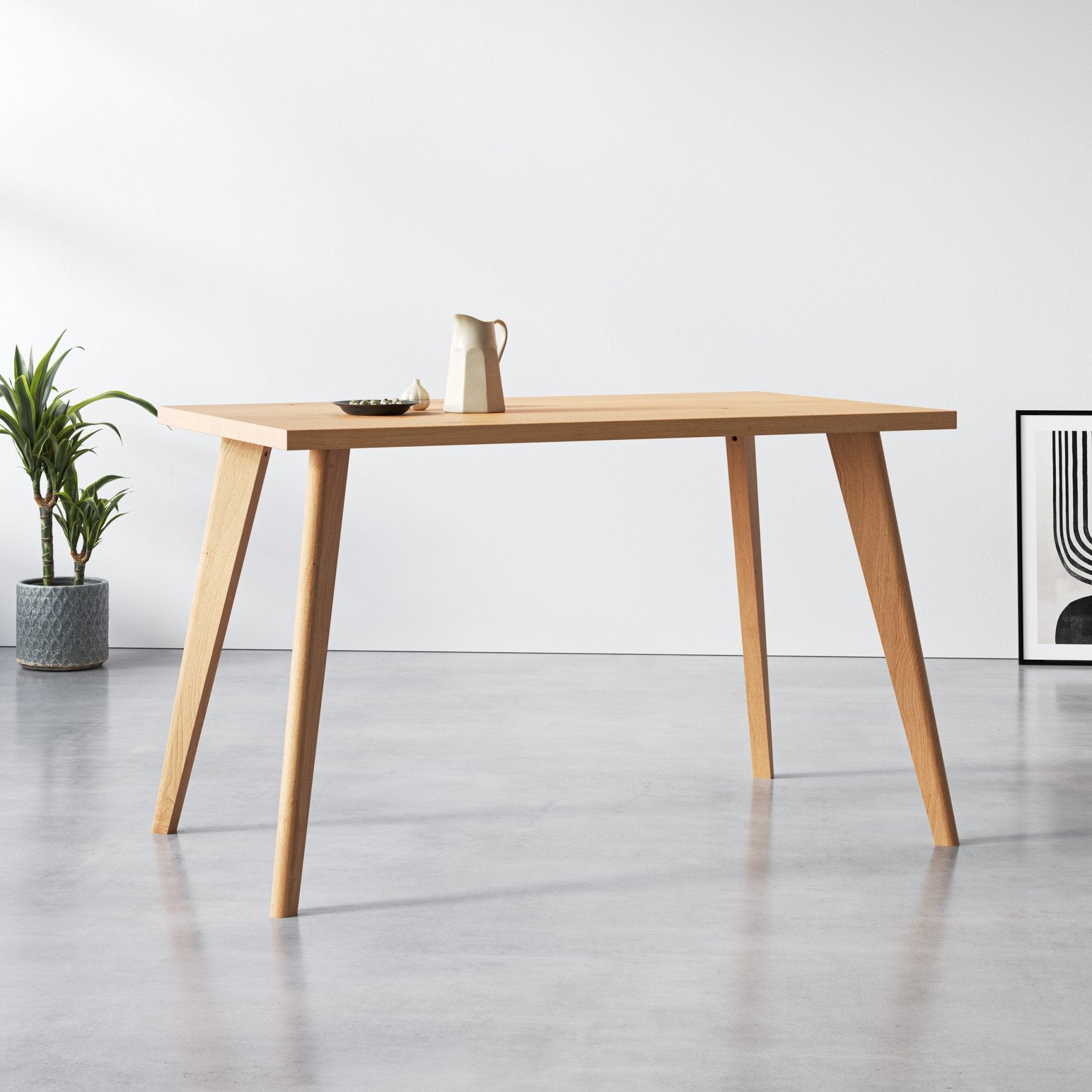Find Classic Charm in Handcrafted Dining Table Legs Wood Selections
Important Considerations for Picking the Right Dining Table Legs Timber
Selecting the proper timber for eating table legs entails a nuanced understanding of different variables that influence both performance and aesthetic appeal. The option of wood kind, ranging from durable hardwoods to a lot more delicate softwoods, plays an essential duty in making sure sturdiness and security. Additionally, considerations pertaining to budget, style, and upkeep should be meticulously assessed. Each of these elements can dramatically impact the overall experience of your eating room. Understanding how these elements interrelate is necessary for making an informed decision that meets your particular requirements and preferences - Dining Table Legs Wood. What considerations will you focus on in your choice procedure?
Relevance of Timber Type

Hardwoods, such as maple, oak, and walnut, are usually favored for their strength and resistance to wear. These sorts of timber give a durable foundation that can endure everyday use, making them optimal for dining tables that experience frequent celebrations. In contrast, softer woods like pine may be more at risk to damages and scrapes, which might not be excellent for high-traffic locations.
Additionally, the option of wood can also influence the simplicity of maintenance. Some woods call for routine oiling or securing to maintain their look, while others might be much more forgiving. Inevitably, choosing the ideal timber type involves stabilizing aesthetic factors to consider with functional needs, making sure that the table legs not just look attractive but additionally stand the examination of time.
Analyzing Stability and Toughness
When examining table legs, one have to think about the security and toughness they supply to the overall framework. The legs are vital in sustaining the tabletop and making sure the dining experience is secure and pleasurable. A secure table is vital for avoiding wobbling or tipping, which can cause spills or crashes during dishes.
The option of wood type dramatically affects toughness. Hardwoods such as walnut, maple, and oak are usually more durable and robust than softwoods like want or fir. In addition, the thickness and design of the legs play a critical function; thicker legs or those with a conical design can provide much better support and stability.

Visual Considerations
While performance is paramount, the aesthetic charm of dining table legs can not be neglected, as they substantially affect the overall layout and ambiance of the dining room. The choice of surface, wood, and layout can enhance or detract from the table's aesthetic impact.

Surfaces additionally play a vital role in looks. A natural finish can highlight the timber's innate beauty, while painted or stained legs can introduce color and individuality right into the space. The proportion and scale of the legs family member to the table top and bordering furniture should be thought about to make sure aesthetic equilibrium and communication.
Inevitably, the eating table legs should not just offer a useful objective yet additionally add to a natural and inviting environment, making them a crucial factor to consider in the general style of the dining area.
Maintenance Demands
To ensure longevity and preserve the charm of wooden table legs, normal upkeep is crucial (Dining Table Legs Wood). Wood is an all-natural material that can be susceptible to damage from moisture, heat, and wear. Establishing a routine care strategy will dramatically improve the sturdiness of your dining table legs.
Begin with regular cleaning utilizing a soft, lint-free fabric to remove dust and particles that can scratch the surface area. For even more extensive cleaning, make use of a moderate soap service and damp cloth, he has a good point staying clear of excess wetness that could permeate into the wood. It is recommended to apply a premium wood polish or conditioner every couple of months to nourish the timber and preserve its luster.
In addition, think about the environment where the table is positioned. Avoid straight sunlight, as it can cause fading, and utilize coasters or placemats to protect the surface area from heat and dampness. Resolve any type of dents or scrapes immediately with ideal wood filler or touch-up pens to stop further damage. By adhering to these upkeep requirements, you will not just preserve the visual appeal of your wood dining table legs however additionally extend their useful lifespan.
Spending Plan and Cost Elements
Budget plan and expense aspects often play a critical role in the decision-making procedure for picking wood table legs. When evaluating options, it is vital to establish a clear budget that aligns with your overall furnishings investment. The expense of wooden dining table legs can vary significantly based upon the kind of layout, timber, and craftsmanship intricacy.
Hardwoods such as cherry, walnut, and oak commonly command higher costs because of their resilience and aesthetic allure. In comparison, softer woods like pine may be a lot more economical however could not provide the same long life. In addition, personalized or artisan-crafted legs can incur extra prices, showing the skill and time spent in their development.
It is additionally important to take into consideration the prospective long-term worth of your investment. While selecting lower-cost materials could seem financially sensible initially, they might require even more frequent substitute or repair work, inevitably enhancing general expense.
As a result, stabilizing top quality and price is necessary. Focus on materials that fulfill your aesthetic choices while guaranteeing they fit easily within your spending plan, enabling you to develop a dining location that is both visually enticing and useful.
Final Thought
In conclusion, selecting the suitable wood for dining table legs requires cautious consideration of different elements, including wood type, security, visual appeals, maintenance, and budget. Ultimately, a well-informed choice will certainly boost the long life and visual charm of the dining table, guaranteeing complete satisfaction and functionality for years to come.
Choosing the appropriate kind of timber for dig this dining table legs is vital for both aesthetic charm and structural honesty. Ultimately, picking the ideal timber type involves balancing visual factors to consider with functional requirements, ensuring that the eating table legs not just look enticing however likewise stand the test of time.
It is suggested to apply a go to this web-site top notch wood gloss or conditioner every few months to nourish the timber and preserve its radiance.
The price of wooden dining table legs can differ considerably based on the type of workmanship, design, and wood complexity.
In conclusion, picking the ideal timber for eating table legs requires careful factor to consider of various variables, including timber kind, security, aesthetics, upkeep, and budget plan.